|
Task Management Software |
 |
|
|
|
|
| |
|
 TESTIMONIALS TESTIMONIALS
|
|
"...This is an excellent program. I'm so glad that I stumbled on to this when researching for task management programs. Very low learning curv, quite flexible, and the price is right. Tried at least 20 other programs, either too complicated, too expensive, or poor documentation..."
Chad Lindsey -
Honolulu, HI
|
|
|
|
|
|
|
|
Passover Checklist |
|
|
|
|
|
|

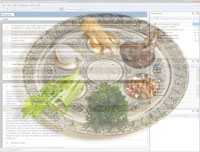 |
This Passover Checklist is a brief guide on the great holiday of Jewish people, which celebrates the freedom and Exodus of the Israelites from the land of Egypt where they were enslaved by cruel Pharaoh. With a help of this checklist you can study the main attributes of this holiday that is very rich in traditions and hidden meanings of every custom.

|
| Order 750 checklists in MS Word and PDF printable format at $49.99 USD only. |
BUY NOW!  |
Before Passover:
- During Passover (eight days celebration), Jewish people refrain from eating any product that is leavened (Matzah, as unleavened bread, is acceptable for eating during this time);
- Family homes are spotlessly cleaned. All bread and any other leavened food are discarded (so called Chametz, including grains, bread, cereal, vinegar, cornstarch and alcohol);
- People must also use different eating utensils and plates during this time, so many families have a special set of dishes and utensils to be used during the holiday only;
- Organize Bedikas Chametz – a traditional search that is performed on the 14th (or on the 13th when the 14th is on a Friday), so several (usually ten) pieces of chametz are hidden around the house beforehand (preferably by a child if available), the lights around the house are turned off, and a candle is lit. All pieces should be found, specifically picked up with a spoon, and placed into a bag;
- Chametz is usually burned or “sold” to a non-Jewish friend to be “redeemed” after Passover;
- Prepare Haggadah – a book where the story is recounted from;
- Send greetings to friends and relatives;
- Get all the ritual items for Passover prepared;
- Prepare gifts for friends, relatives, colleagues, etc;
Passover Traditions:
- Origin:
The name of this holiday comes from the Hebrew word “Pesah” which literally means “passing over”. It commemorates the freedom & exodus of the Israelites (Jewish slaves), which was bestowed by the G-d, and leaded by a simple Jewish shepherd Moses. It has been celebrated by Jewish families for more than 3,000 years;
- History:
Passover is a great religious Jewish holiday that refers back to the time of the Exodus from Egypt when the Hebrew people were enslaved by Pharaoh. Probably all Jewish and Christian people of the world know the story of Exodus, as this book is a part of the Holy Bible. Moses was instructed by G-d to go to the Pharaoh and demand the freedom of his people, and warn the Pharaoh that G-d would send severe punishments if the plea is rejected. The request of freedom was ignored by Pharaoh, so in response G-d unleashed a series of 10 plagues upon the people of Egypt. In a result the Pharaoh agreed to let Hebrew people go;
- The culmination of the feast is the ceremony of Seder performed on the first two evenings of the holiday. During the Seder dinner, the story is recounted from a book called the “Haggadah.” A special Seder Plate adorns the table and contains six traditional food items;
- Many Jewish families observe a tradition that is known as the fast of the firstborn. It takes place on the morning before Passover and refers to the tenth plague (The Plague of the Firstborn). During this period the firstborn son will fast until the end of the morning pray service;
- Refrain from all work on the first and last days of Passover (you may work on the intermediate days, which are called Chol Ha-Mo’ed);
- Four cups of wine are to be drunk during the Seder meal. Each cup is connected to a different part of the seder: the first cup is for Kiddush, the second cup is connected with the recounting of the Exodus, the drinking of the third cup concludes Birkat Hamazon and the fourth cup is associated with Hallel;
- Traditionally, the youngest child asks four questions about the Passover Seder, beginning with the words: “Why is this night different from all other nights?” (the leader of the Seder and the other adults at the meal will use prompted responses from the Haggadah):
- Why is this night different from all other nights?
- On all other nights, we eat either unleavened or leavened bread, but tonight we eat only unleavened bread?
- On all other nights, we eat all kinds of vegetables, but tonight, we eat only bitter herbs?
- On all other nights, we do not dip [our food] even once, but tonight we dip twice?
- On all other nights, we eat either sitting or reclining, but tonight we only recline?
- Passover activities (Seder order):
- Light the festival candles before sunset. Recite two blessings over the candles;
- Singing blessings over the first cup of wine;
- Washing hands;
- Dipping a vegetable in salt water (Karpas);
- Breaking the middle Matzoh (of the three Matzohs on the table) and hiding the Afikoman (a half-piece of matzo which is broken in the early stages of the Passover Seder and set aside to be eaten as a dessert after the meal);
- Telling the story from Haggadah, asking the four questions, describing the four children and drinking the second cup of wine;
- Washing the hands before the Seder meal;
- Saying the blessings for Matzah (Ha-motzi and a specific blessing);
- Tasting the bitter herbs (maror) and dipping them in Haroset;
- Eating a Matzoh and sandwich with bitter herbs (piece of maror and charoset between small pieces of matzoh);
- Enjoying the Seder meal (see a sample menu below) – anything goes here, except, of course, the leavened foods (Chametz);
- Finding and eating the Afikoman;
- Singing the blessings after the meal (Birkat ha-mazon);
- Drinking the third cup of wine, and opening the door for the prophet Elijah;
- Singing Psalms of praise and drinking the fourth cup of wine;
- Singing the traditional songs;
- Saying a statement that the Seder has been completed and a wish to celebrate next year’s Pesach in Jerusalem;
Meal:
- Serving the Seder Table:
- Paper plates, cups, napkins;
- Utensils for Kosher Kitchen;
- Seder Plate;
- Candlesticks;
- Matzoh Plate;
- Matzah Cover;
- Wash Cup;
- Bowl for Saltwater;
- Haroset Bowl;
- Elijah Cup;
- Miriam Cup;
- Matzo Mitt;
- The Passover Seder Plate:
- Recipes:
- Tzimmes;
- Matza Balls in ...
| Order 750 checklists in MS Word and PDF printable format at $49.99 USD only. |
BUY NOW!  |
|





 |
CentriQS Tasks Management Solution 
Looking for multi-user task management software? Try CentriQS complete task management solution for planning, tracking and reporting tasks, projects, and schedules. Increase productivity of your small business or office by better organizing your employees' tasks and time.
 FREE Download CentriQS FREE Download CentriQS
|
|
|
|
|
|
|
|
|
|
CentriQS  -15% OFF -15% OFF |
All-in-one business management software
for small and midsize enterprises |
 |
|
|
| VIP Task Manager |
Multi-user project management software
to plan, schedule and track project tasks. |
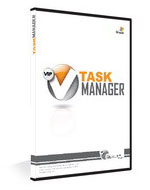 |
|
|
| VIP Checklists
|
More than 750 ready-to-use to-do lists
to plan your personal and business life |
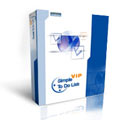 |
|
|
| VIP Team To Do List |
Professional task management software
to make and send team todo lists by email |
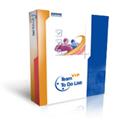 |
|
|
| VIP Organizer |
Personal time management software
to organize time at home and at work |
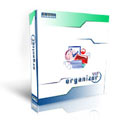 |
|
|
| VIP Simple To Do List
|
Simple and effective to-do list software
to plan daily chores, trips, wedding, etc. |
 |
|
|
|
|
|
|
|